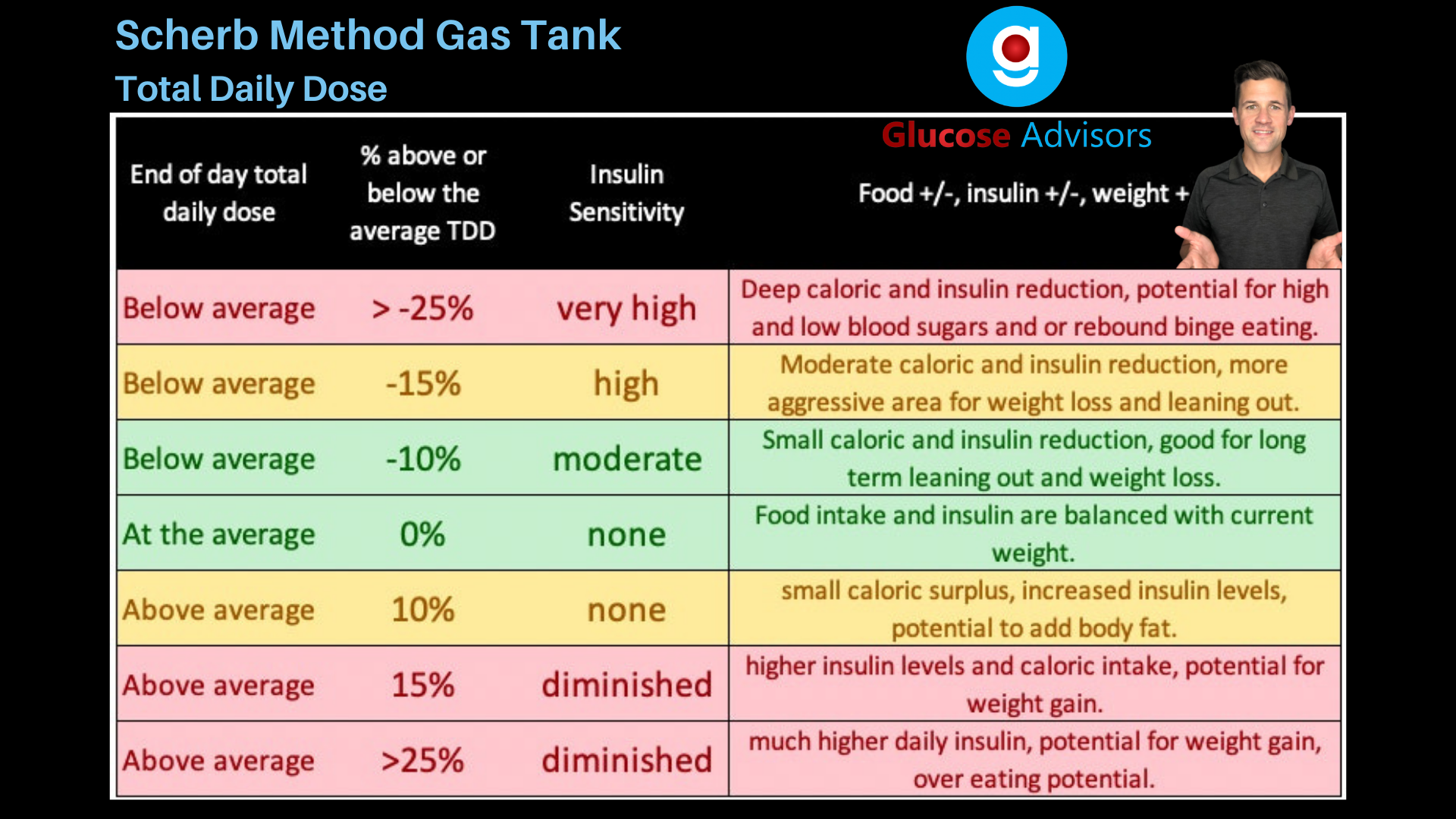The Scherb Method for Weight Loss and Activity: The T1D Gas Tank
Editor’s Note: This is an update to Cliff Scherb’s previous article, “Lose Weight with Type 1 Diabetes.”
You spend hours trolling the web for nuggets of information and sidle up to google to find the smoking gun that will help ease your diabetes burden. Your go-to strategy for finding advice is among your peers in small communities where anecdotal advice is offered by well-meaning individuals. Yet, after all the research you walk away with what worked for someone else and are unable to cobble together a cohesive strategy that ties it all together.
You are capable of so much more; you just have not been given a management roadmap. In my experience helping others with their blood sugar and health goals, the one maxim is that people with diabetes (T1Ds) do not lack the desire to improve but rather are missing the resource expertise to unlock their blood sugar and body composition goals.
If you were building a house, you would start with a strong foundation. The diabetes “better” foundation starts with a great total daily dose. Our Glucose Advisors use this as a starting point and it underpins the Scherb Method. Understanding the “T1D Gas Tank” as it relates to your total daily dose can help you not only to lean out but also to stay in greater blood sugar control.
How total daily dose impacts your “Scherb Method Gas Tank”
There may not be a whole lot of advantages when it comes to having type 1 diabetes versus not having it, however, when it comes to eating well, some type 1’s will have a leg up! Tracking your total daily dose will represent the “size” of your carbohydrate “gas tank.”
Meaning, when looking at the total daily dose average, if you hit the daily average your body’s glycogen stores are generally close to being completely topped off. This allows you to modify your diet, maintain a healthy weight and keep great energy levels. Glycogen stored in our muscles is used for daily activities to help our body and brain function normally. This is a limited resource and needs to be replenished regularly.
How can you figure out how many gallons of gas your glycogen tank holds? It is the same as the total daily dose for your current activity level and nutritional habits.
This number represents a full tank of muscle glycogen. When you are beneath this number at the end of the day, your body is light on carbohydrates and or calories in total. When you are above this number the tank is full and the potential for weight gain exists.
This window within your body offers several key advantages for you to make decisions based on your circumstances.
1. Below the goal total daily dose – Calorie deficient: Insulin sensitivity is increased beneath the average total daily dose. This means when you are below the average total daily dose at the end of the day, your sensitivity to insulin will be high. For example, let’s say you play soccer intensely during the day. At night you fuel back up with a solid carbohydrate dinner and just before bed, you check your pump to find that you have only taken 25 units and are -5 units to your normal total daily dose for this activity level of 30 units per day. This would be ~17 percent beneath the total daily dose for the day and would indicate that you have a higher chance for insulin sensitivity and could even go low overnight.
2. At goal total daily dose – Fully recovered: If you are at your total daily dose at the end of the day, you are topped off with the glycogen stored in your muscles. Your sensitivity is normal and you can expect less blood sugar swings and changing insulin demands overall.
3. Above the goal total daily dose – Calorie surplus: With a higher total daily dose, you have the potential for higher blood sugars and or weight gain. To combat a higher blood sugar you would need to raise your basal rates or doses.
Think of it like a car, the gas tank can only hold 30 gallons and if you try to put in 31 it will spill over (aka you go high) or the tank needs to get bigger (gain weight) to hold the extra gallon! Note in some instances due to stress/hormones and or other physiological episodes, higher total daily doses may be appropriate and independent of a caloric surplus and not contribute to weight gain. (Examples would be teenage hormones or the timing of a female’s cycle.)

Knowing your total daily dose is valuable for blood sugar control and predictability for what you should or need to be doing with your insulin.
It is also very helpful in preventing weight gain which is easy to do when the body receives too much insulin. In many leaning out and weight loss phases you will need to target beneath your average total daily dose in order to lose weight effectively.
Note that this total daily dose observation does not always apply to all people and all situations.
Remember due to the complex nature of hormones, the timing of your insulin, nutrition, absorption and other medications, you should apply this logic to your own situation as a “general” rule to follow. We encourage you to start tracking your total daily dose as it is fundamental to blood sugar management and this method.
Yes, it is one more thing to track in an already busy day and life. Anything worth doing takes work! Practicing your nutrition timing and activity can help you to create greater insulin sensitivity which lowers your total daily dose. Ultimately, when you track the total daily dose this can help lead to longer-term weight loss and happiness with enhanced blood sugars.





